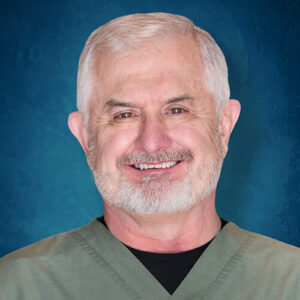What Is Laser Hair Restoration For?
As you age, you start to notice little changes in your physical appearance. You gain small wrinkles, your skin doesn’t heal like it used to, and you may even begin to bald or lose hair. While this can be a daily reminder of getting older, these physical aspects can be treated – especially balding. Laser hair restoration is an easy way to slow the balding process and — in most cases — restore the density of your hair.
Causes of Hair Loss
The great majority of hair loss in both women and men is caused by a process called adrenergic hair loss. In adrenergic hair loss, a hormone derived from testosterone called dihydrotestosterone or DHT causes hair follicles to shrink. When they shrink, they make smaller and whiter hairs. Some factors affecting adrenergic hair loss include:
- Genetics. Our genes play a role in both genders, making some of us more susceptible to DHT than others.
- Age. The effects of DHT increases with age.
- Hormones. About 10-15% of women may have underlying hormonal disorders adding to their hair loss. In addition, women after menopause have less estrogen which may contribute to the hair loss from DHT in post-menopausal women.
Occasionally hair loss can be caused by factors other than adrenergic hair loss. Some of these include:
- Chemotherapy
- Medical conditions — such as Lupus or diabetes
- Autoimmune disorders — such as alopecia areata
- Tension hair loss from pulling hair tight over a long period of time
- Other drugs
Available Treatments
Low-Level Laser Therapy (LLLT) is effective for many people with hair loss. In studies using devices available only in a doctor’s office, more than 98% of patients saw at least a 20% increase in hair and almost 90% saw a 30% increase. Many devices are available on the Internet that claim to be similar, but do not deliver equivalent results. These devices cannot deliver the same amount of appropriate light energy to the scalp that medical office lasers offer.
Laser hair restoration isn’t the only available treatment for hair loss. There are also over-the-counter medications — like minoxidil and finasteride. Finasteride is a prescription medication that can also help, but side effects have limited its use. For some, hair transplant surgery options are the best choice, but the laser can help make transplants more effective. Each option comes with pros and cons, and you should always talk to your doctor about the best choice for your hair needs.
Advantages of Hair Restoration vs Other Treatments
Hair restoration medications may not produce the results you acquire depending on the reason for your hair loss. Regardless of your gender, laser hair restoration options offer products to fit your needs. In-office treatments with laser hoods provide an overall improved hair experience for people who have bald patches or have finished their chemotherapy treatment and are looking to boost their hair growth. Laser hoods cover broad areas and only takes 20 minutes per session with more reliable results.
Laser hair restoration — regardless of the option you choose — is one of the easiest hair restoration treatments. That’s because it requires about 20 minutes of your time while providing faster results. Compared to medications and surgery that can take four or more months to begin working or require you to take time out of work, laser treatments can begin working after 12 weeks.
*For more information about hair restoration based on gender, read our related blogs: Hair Restoration for Women and Hair Restoration for Men.
What to Expect
Laser hair restoration sessions typically occur in-house, and you can attend two to three sessions a week. They only take 20 minutes of your time and can treat broad areas of hair loss to small patches. With laser hair restoration treatment, you’ll never have to worry about missing work. There is no downtime, and you can continue with your normal day after treatments.
The earlier you begin the laser therapy process, the better your odds for success. Some people begin seeing results after 12 weeks, but results can take as long as 26 weeks to occur. Complete baldness often produces slower or ineffective results, so you should always talk to a laser hair restoration specialist before making any final decisions.
Contact Innovations Medical for Hair Restoration Procedures
If you’re looking to thicken your hair and reclaim your youth, Innovations Medical is here for you. Our skilled professionals help you decide which hair treatment is best for you – keeping you informed and confident in the next steps. We’ve been helping our patients look and feel their best since 1984, and even our most advanced procedures are often minimally invasive.
To find out if laser hair restoration is right for you, and to learn how Innovations Medical can improve your life, call us at (214) 643-8665 or schedule a consultation.




